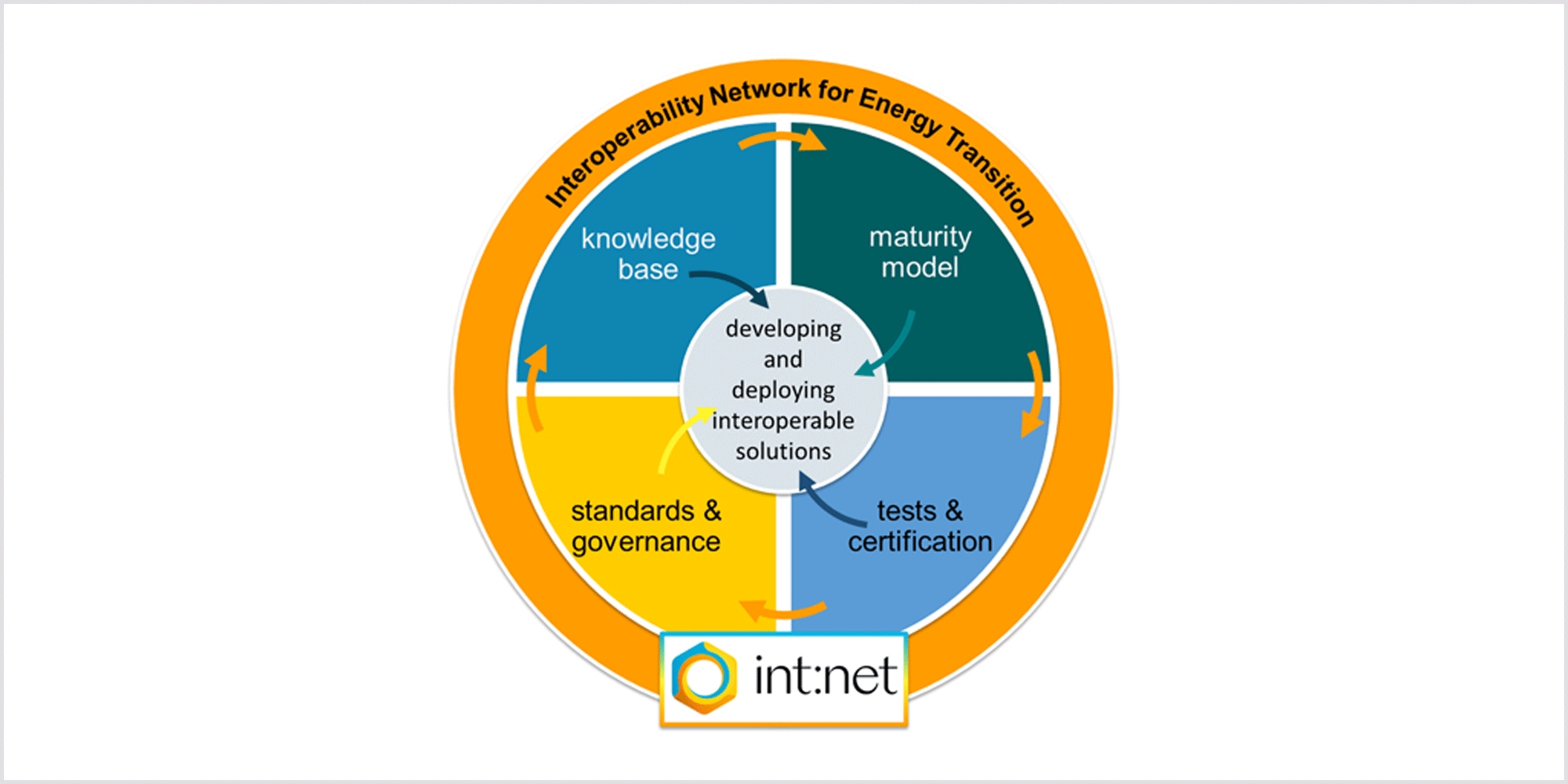Project duration: 01.05.2022 – 31.10.2025

Copyright: B.A.U.M. Consult GmbH
int:net – Interoperability Network for the Energy Transition (EU funded project)
Consortium partners:
- Fraunhofer-Gesellschaft zur Förderung der angewandten Forschung e.V., Germany (coordinator)
- AIT Austrian Institute of Technology GmbH, Austria
- B.A.U.M. Consult GmbH, Germany
- OFFIS e.V., Germany
- EPRI Europe DAC, Ireland
- VDE Verband der Elektrotechnik Elektronik Informationstechnik e.V., DKE Deutsche Kommission Elektrotechnik Elektronik Informationstechnik in DIN und VDE, Germany
- Fundación Tecnalia Research & Innovation, Spain
- European Network of Transmission System Operators for Electricity AISBL (ENTSO-E), Belgium
- European Distribution Systems Operators for Smart Grids AISBL (E.DSO), Belgium
- European University Institute, Italy
- Rheinisch-Westfälische Technische Hochschule Aachen, Germany
- TRIALOG SAS, France
- Bundesministerium für Klimaschutz, Umwelt, Energie, Mobilität, Innovation und Technologie, Austria
Interested in additional content about Energy?

It is just a big a topic in everyday conversation and societal discourse as it is at DKE: everyone is talking about energy. Our standardization experts don’t just provide their knowledge to make the supply and distribution of energy “smart” and decentralized in the future, they also make an equally large contribution toward the operation of electrical systems and the wide-scale distribution of renewable energies. You can find further information about this subject area in




